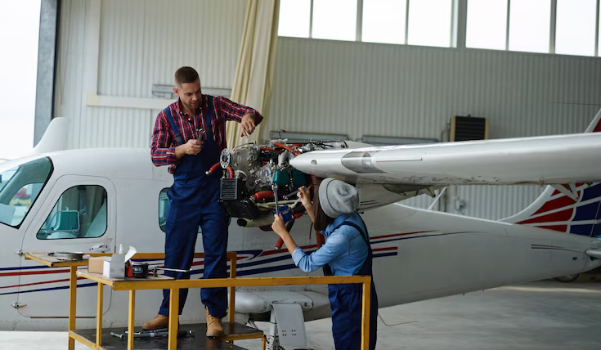When it comes to safety and precision, the aviation sector operates under stringent standards, and even the smallest error in computation can have significant repercussions. When it comes to maintaining this level of precision, the airplane scale is a tool that is frequently overlooked yet necessary. In this article, you will learn about airplane scales and gain an understanding of the crucial role that they play in the operations of aviation equipment.
Weight And Balance Calculations
The fundamental notion of ensuring that aircraft are kept at the appropriate weight and balance is at the heart of aviation safety. An exact measurement of the weight of the aircraft, including the weight of passengers, cargo, and fuel, can be accomplished with the use of aircraft scales. Pilots and engineers can achieve ideal balance, stability, and control throughout the flight process by precisely establishing the weight distribution across the aircraft. Airplane scales offer the critical data that is required for safe operation, whether it be for calculating takeoff weight limitations or for correcting for varying payloads.
Safety Compliance
In the aviation industry, compliance with safety requirements is of the utmost importance, and airplane scales play a significant part in ensuring that this is the case. To guarantee the safety of takeoff, landing, and flight, the authorities in charge of aviation enforce stringent weight limits on aircraft. To identify any deviations from these limitations, weighing aircraft regularly using aviation scales is helpful. By regularly monitoring weight and balance, operators can maintain the highest possible safety standards and compliance with regulatory requirements.
Maintenance Checks
It is crucial to keep aircraft in optimal condition when it comes to ensuring that operations are safe and effective. Scales for airplanes are vital instruments that are utilized during routine maintenance inspections. These scales are utilized to determine the weight of a variety of components, including engines, landing gear, and structural elements. Engineers can identify indicators of wear and tear, fatigue, or structural deterioration that may threaten safety by measuring the weight of these essential components. The early identification made possible by airplane scales permits prompt maintenance interventions, ensuring that the aircraft will continue to be airworthy until further notice.
Performance Optimization
The modern aviation industry is built on the principle of efficiency, and airplane scales are an essential component in optimizing aircraft performance. Decisions regarding fuel load and distribution are informed by airplane scales since they provide accurate weight measurements. By achieving the proper weight balance of the aircraft, pilots can reduce the amount of fuel they consume while increasing their range and endurance. This reduces the amount of gasoline burnt, saves money, and has a positive environmental impact.
Cargo Management
A large part of aviation involves the carrying of cargo, which can include passengers’ luggage and freight shipments. To preserve the aircraft’s equilibrium and steadiness, airplane scales guarantee that the weight of the cargo loads is precisely distributed and maintained. Because overloading can put both safety and integrity at risk, efficient cargo management is necessary. Airplane scales allow operators to properly calculate the weight and distribution of cargo, ensuring that loading processes are carried out in a safe and efficient manner.
Regulatory Compliance
Standards for safety are not the only laws that aviation authorities follow; they also enforce stringent limits regarding the weight and balance of aircraft. When it comes to demonstrating compliance with these requirements, airplane scales are an instrument that cannot be overlooked. Airplane scales can assist airlines and operators in adhering to established limits and avoiding penalties or legal implications by giving accurate weight measurements. Compliance with regulatory standards is not only an issue of safety in the highly regulated aviation business but also a legal requirement that must be met.
Conclusion
Airplane scales are the unsung heroes of the complicated and safety-critical aviation industry. They work in the background to ensure that aircraft operations are safe, efficient, and in compliance with regulations. Their responsibilities go far beyond simple weight measures; they also include aspects of safety, maintenance, performance optimization, and environmental regulation compliance.



